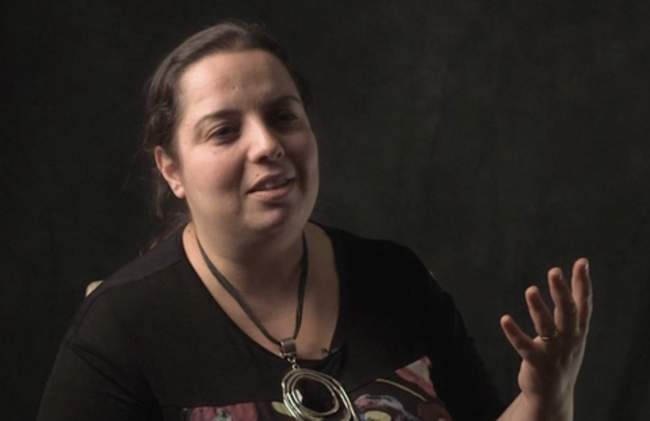Oral Historian Spotlight: In Conversation with Agnieszka Ilwicka
As part of our Oral Historian Spotlight, we asked Aga to reflect on her years with the Project. Here are Aga’s insightful and touching answers:
How has your approach to interviews changed over time?
It’s changed a lot! I really liked doing it from the beginning of my work at the Yiddish Book Center over six years ago, but I learned only with time how to get deeper into the story and listen more carefully. Finally, I realized that a great interview is an art that everyone will really appreciate: the interlocutor, the interviewee, and at least some of the audience.
What, to you, makes a great interview?
I think a great interview comes from the heart of both the oral historian and the interviewee. The chemistry between the person who asks the question and the person who responds to it plays an important role in the process of creating an interview, but that’s not the only factor. Even the best story can be misunderstood if recorded on poor equipment, in a loud room, or with noise in the background. Over time, I realized that silence is necessary for a good interview; sometimes it can give a person time to think and to remember something significant that later turns out is the key to the story.
Also, a great interview comes out of respect to the interviewee. Without this in mind, even the best question might sound pretentious. I always try to have a great respect for the people who are sitting across from me and sharing their life treasures with me and the broader audience.
What do you hope people get watching your interviews?
Every interview, even with the same person, is different because the oral historian adds his or her personality to it, and the dynamic between the people is different. In my interviews I try to show that every story is important because each person’s life has a unique meaning. I hope that people who watch my interviews see what I see in my interviewees, which is that a great love for the culture means respect for the people, and that history is an unfinished circle which can be repeated at any time, so it’s always worth knowing how people managed to get out of their traps and figured out a recipe for the happy life.
Also, all the interviews for the Wexler’s Oral History Project are about Yiddish and how Yiddish really belongs to the world and should be seen as a world treasure, which means it does have its own place in almost every country. The work that Jews and non-Jews are doing together to preserve Yiddish all over is incredibly important. I believe that their names and work shouldn’t be forgotten.
Last but not least, Yiddish is not just a beautiful language that sounds great; it’s a rich culture, full of amazing people over the centuries, and I really hope that the interviews I conduct offer some understanding of why it’s worthwhile to get interested in Yiddish. I hope that by watching my interviews, people will feel inspired to dig deeper into their own stories, and look more carefully at other cultures knowing that almost everywhere it’s possible to find another and unique image of the Yiddish culture.

Do you have a favorite interview you’ve recorded for the WOHP?
I don’t have an interview that I would say is my favorite because each interview was important to me, and meeting with everyone who decided to share their stories with me is like a gift. But among them I really like an interview with Anna Shternshis, an inspiring academic teacher, an oral historian herself, and a person whom I admire for her oral history project and from whom I’ve learned a lot. She shares her love of Yiddish and oral history in fascinating books, based on the interviews that she has conducted for more than a decade.
I found this interview interesting for myself, and I hope that people who watch it will come to the same conclusion, as it came to my mind when I listened to the interview later that sometimes the closed door of the archive could be an opportunity to open stories from the past of living people giving us treasures available only in this way. And that’s the essence of oral history.
Learn more about Agnieszka’s oral history background with our Oral Historian Spotlight: Agnieszka Ilwicka.
Watch full interviews and clips from Agnieszka’s interviews here.
